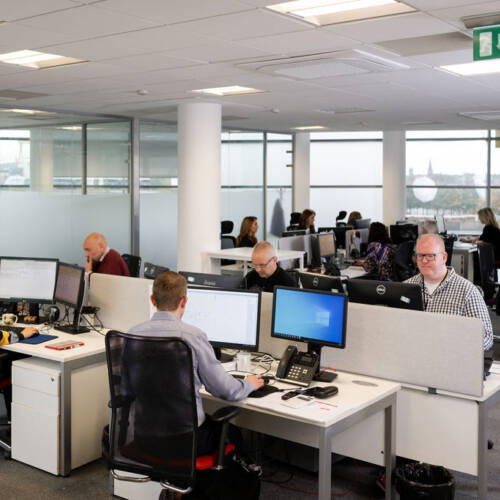In today’s competitive business landscape, attracting and retaining top talent requires more than just offering a good salary.
Companies are increasingly expected to provide working environments that enhance employee well-being, improve productivity, and accommodate personal commitments. One way to achieve this is through flexible working arrangements.




1. Attracting Top Talent
Flexible working is no longer just a ‘perk’ but a key factor that candidates actively look for when choosing an employer. Offering options such as remote work, flexible hours, or hybrid setups can expand your talent pool. With fewer geographical restrictions, businesses can attract skilled professionals from diverse regions, enhancing the calibre of their workforce.
2. Boosting Employee Productivity and Job Satisfaction
Flexible working allows employees to better balance their work and personal lives, leading to higher job satisfaction. Happier employees tend to be more engaged, motivated, and productive. Giving staff the freedom to work when they are most focused can reduce distractions, fostering a more efficient work environment.
3. Reducing Employee Turnover
Businesses that offer flexible working options demonstrate trust in their employees. This trust helps to build loyalty, reducing staff turnover rates. Employees are more likely to stay with a company that respects their time and personal commitments, saving employers the significant cost of recruitment and training.

4. Supporting Diversity and Inclusion
Flexible working arrangements enable businesses to be more inclusive. For instance, working parents, carers, or individuals with disabilities often find traditional working hours restrictive. By offering more flexibility, companies can tap into talent that may otherwise be overlooked, promoting a more diverse and inclusive workforce and ultimately, reducing economic inactivity.
5. Cost Efficiency
For employers, flexible working can also present financial benefits. Reduced demand for office space, utilities, and other overheads can result in significant cost savings. Remote working can also lead to fewer employee absences, as people are able to manage their schedules around appointments or childcare without needing to take time off.
Conclusion
Flexible working is no longer just a trend—it is a strategic approach that benefits both employees and employers. By incorporating flexible working arrangements, businesses can enhance productivity, attract top-tier talent, and foster a loyal, satisfied workforce. For companies looking to gain a competitive edge, embracing flexibility is a smart, forward-thinking move.
